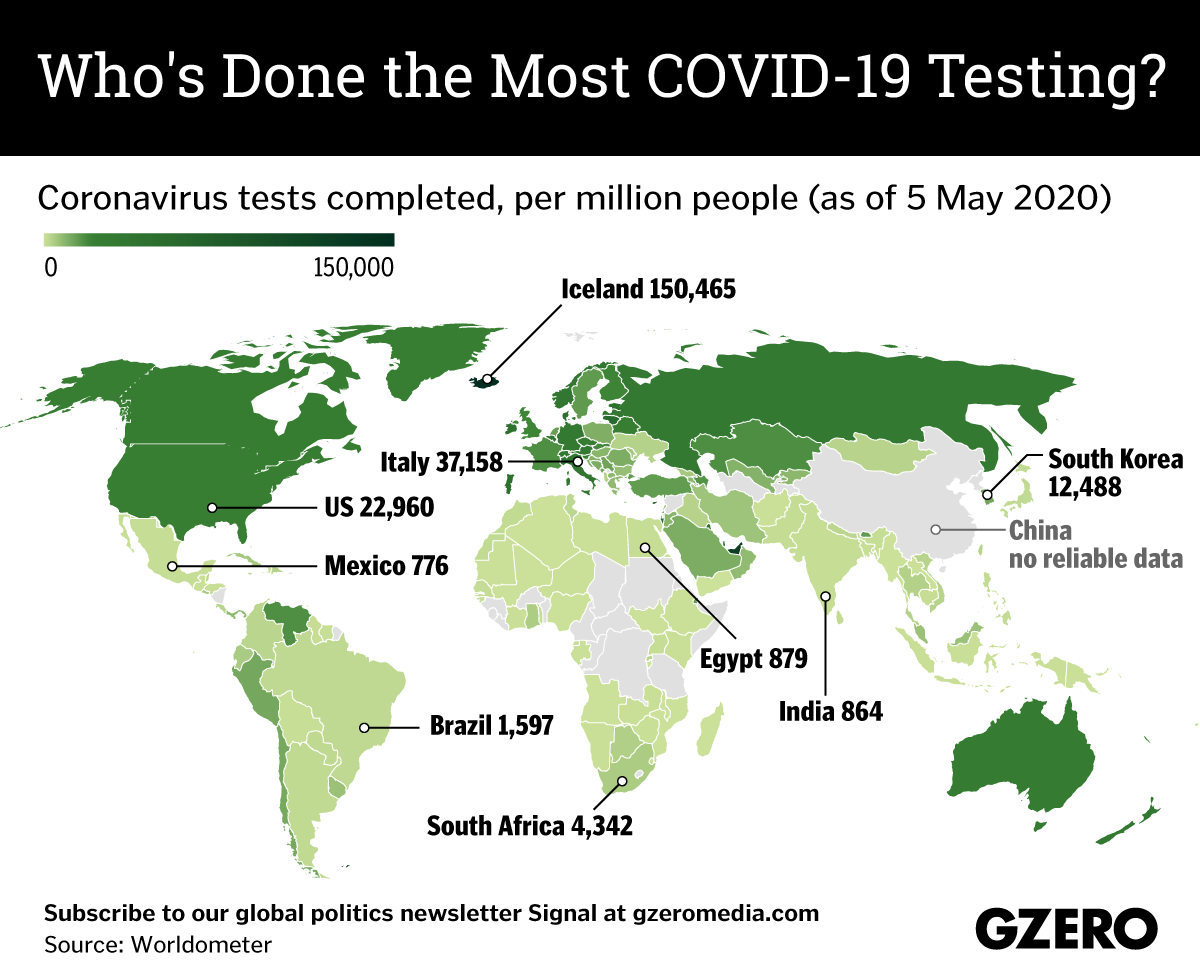May 06, 2020
The message from public health experts around the world — from Mumbai to New York, Beirut to Cape Town — has been consistent since the pandemic first emerged: test often and test widely. That's because knowing the number of COVID-19 cases in a country is only useful if you also know how widely tests are being conducted. Data reveals extremely insufficient testing in many places, which may be contributing to a vast underestimation of the virus' spread and associated deaths. India, for example, has been hailed for its relatively low death toll, but it also has an inadequate testing rate, testing just 864 per 1 million people. But the success of testing is not just about scope, it's also about the speed of the government response. South Korea, for example, has a lower testing rate than the US now, but its government tested widely during the early stage of the crisisand managed to isolate infected people before the virus spread like wildfire. Here's a global look at how much testing countries have done so far.
More For You
Sports inspire greatness, determination, and resilience — both on and off the field. Bank of America is proud to celebrate the achievements of and uplift communities through the power of sports. Learn more about how Bank of America supports athletes in life and in the game.
Most Popular
What's Good Wednesdays
What’s Good Wednesdays™, December 10, 2025
Walmart sponsored posts
Walmart's $350 billion commitment to American jobs
Sponsored posts
Tools and Weapons – In Conversation with Ed Policy
Members of security forces stand guard outside a polliong station, a week late in a special election, after the local governing party kept voting closed on election day, amid accusations of sabotage and fraud, in a presidential race still too close to call as counting continues, in San Antonio de Flores, Honduras, December 7, 2025.
REUTERS/Leonel Estrada
More than a week after Hondurans cast their ballots in a presidential election, the country is still stuck in a potentially-dangerous post-election fog.
© 2025 GZERO Media. All Rights Reserved | A Eurasia Group media company.
